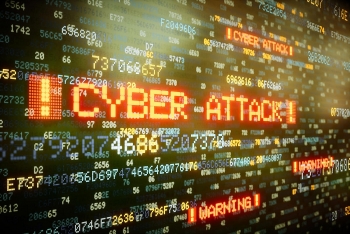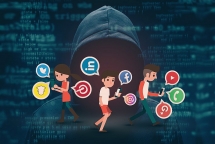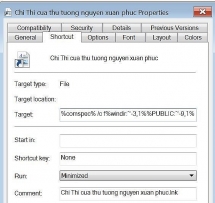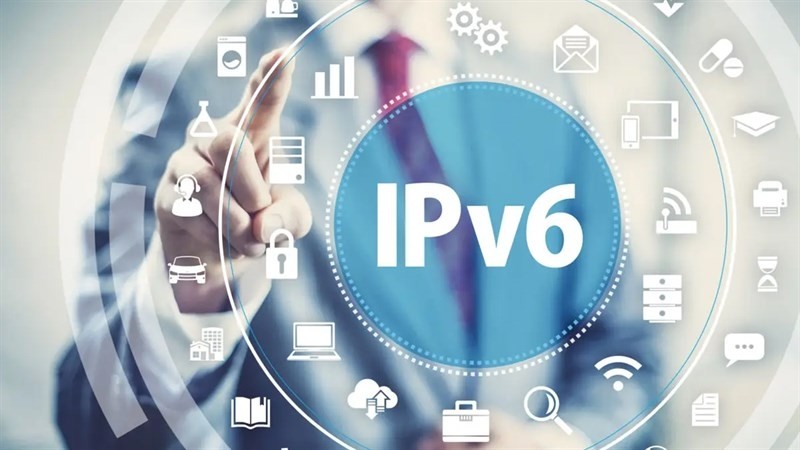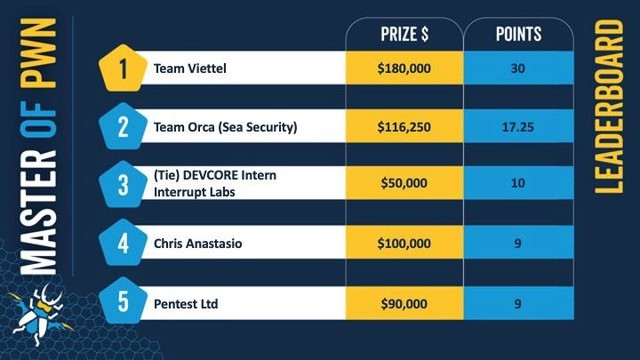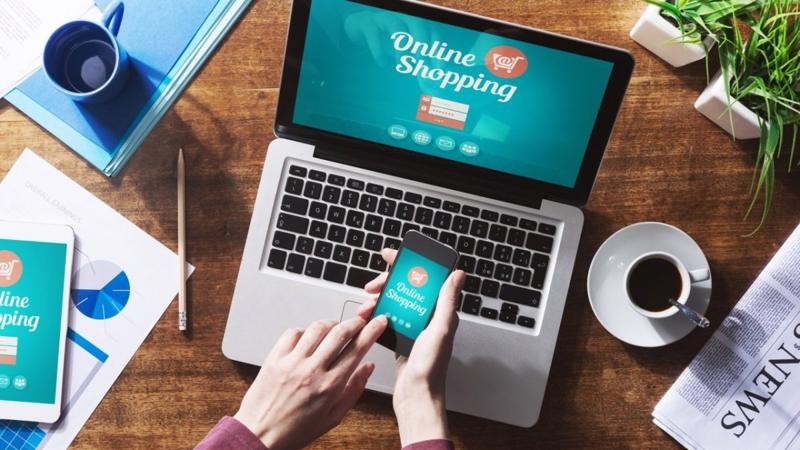Security experts ask internet users to protect themselves from cyber attacks
 |
| Internet users are at risk of cyber attacks (Photo: VIK News) |
Truong Quynh Mai was terrified when she received a phone call saying she had been a victim of fraud in Ha Noi and needed to go to the local police station.
Mai gave her personal details to the caller on the other end of the line, but luckily, Mai stopped when she was asked for her credit card details.
“At that moment,” Mai said, “I suddenly knew it was a trick and did not worry anymore about the threat. Money is important to me, so I didn’t dare share my credit card number.”
Not all people who are trapped by similar tricks recognise it as quickly as Mai. They are not only giving personal information, bank account details and credit card numbers, but also sending money to strangers.
Most importantly, fraudsters get a lot of phone numbers and, according to cyber security experts, the numbers could have been leaked by their own users when they use social networks such as Facebook or Instagram, or when they book flights.
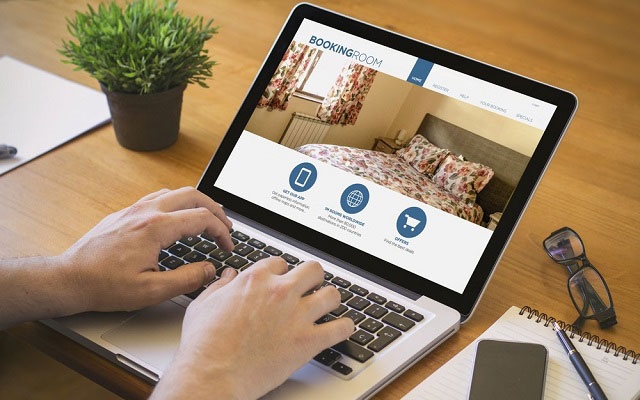 |
| The longere you use social media, the higher risk your data will be collected (Photo: Vietnamnews) |
Nguyen Minh Duc, CEO of CyRadar Information Security Joint Stock Company, said: “Most social network users in Viet Nam leak the information themselves. They also post lots of updates of many activities of their day online, which makes it easy for hackers to track them.”
Duc said: "The longer you use social media, a clearer picture of you will be automatically collected with current technology, especially big data.”
Besides users, service providers add to the leaks, said the experts.
When registering for a service, most customers have to give at least their name and phone number; more must give email, ID number, permanent address. Service providers are always committed to protecting customer data at the highest level.
However, there are many cases of information disclosure from the providers.
Phan My Hoa in Ha Noi said: "One time I bought a plane ticket to Hue via a travel agent, then I was called and received a lot of text messages from taxies and restaurants in the city.”
Hòa thought the agent has leaked her information to other firms, saying: “I will never book there again.”
 |
| Internet users should better protect themselves when online (Photo: Computer Fixing Service) |
Most recently, customer details and credit card information on hotel booking site Booking.com was leaked. Also, sometimes electronic wallet transactions and online intermediaries have encountered similar situations.
In addition to having businesses intentionally give customer information to third parties, businesses also encounter hacks.
According to Ngo Tuan Anh, Bkav's vice president of cybersecurity, hackers focused on stealing information from big providers.
Thus, experts told internet users to limit sharing their personal information online.
They said people need to avoid using social networking accounts to connect to third-party applications.
Nguyen Trong Duong, director of the Vietnam Computer Emergency Response Team, Ministry of Information and Communications, said to the People's Police Newspaper: “People need to use copyrighted software and applications from official sources,” suggesting not to access unknown websites, links in emails or on Facebook to getting viruses and being targeted by hackers.
Experts also recommend using a phone number to have a two-factor authentication.
They also advised users to change the password of accounts regularly and not to use the personal information such as date of birth or full name to create a password.
They also urged: “Do not use the same password for multiple accounts.”
The experts asked users to immediately change the passwords of important accounts if they found something wrong with their information.
But most of the experts said the most important thing is to have a sense of protection of personal information when online.
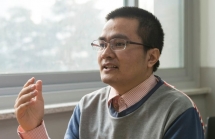 | Dr. Dinh Ngoc Thanh: From computer-illiterate man to technology lecturer at Korea University Dr. Dinh Ngoc Thanh is an apprentice professor, the Internet of Things’ lead researcher from Soongsil University, South Korea and visiting scientist of Massachusetts Institute ... |
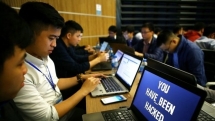 | Computer viruses cause US$902 million damage in Vietnam Computer viruses caused estimated losses of 20.9 trillion dong (US$902 million) to Vietnamese users last year, much higher than the 14.9 trillion dong reported in ... |
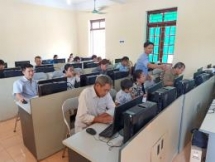 | Training on basic computer use for people with disabilities From August 16 to 18, in Ninh Binh province, a training course on basic computer use for local people with disabilities was held. |
Recommended
 Viet's Home
Viet's Home
Traditional Martial Arts Exchange between Sinh village (Hue City) and Katsuragi City (Japan)
 Viet's Home
Viet's Home
Lai Chau National Assembly, People's Council Delegates Hold Dialogue with Children
 Viet's Home
Viet's Home
24 Children with Disabilities in Northern Provinces Received Free Surgery
 Viet's Home
Viet's Home
World Vision Promotes Comprehensive Nutritional Care for Vietnamese Children
Popular article
 Viet's Home
Viet's Home
Hanoi, South Africa Strengthens People-to-people Exchanges, Expands Multi-sector Cooperation
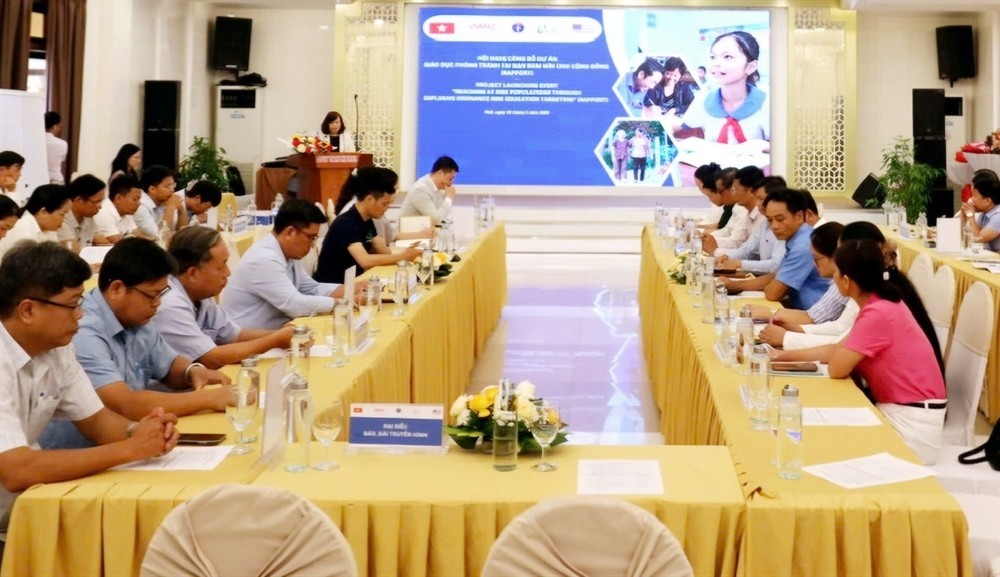 Viet's Home
Viet's Home
Hue City to Raise Awareness on Mine Accident Prevention
 Focus
Focus
Vietnam Leaves Imprints on the World Peacekeeping Map
 Viet's Home
Viet's Home

